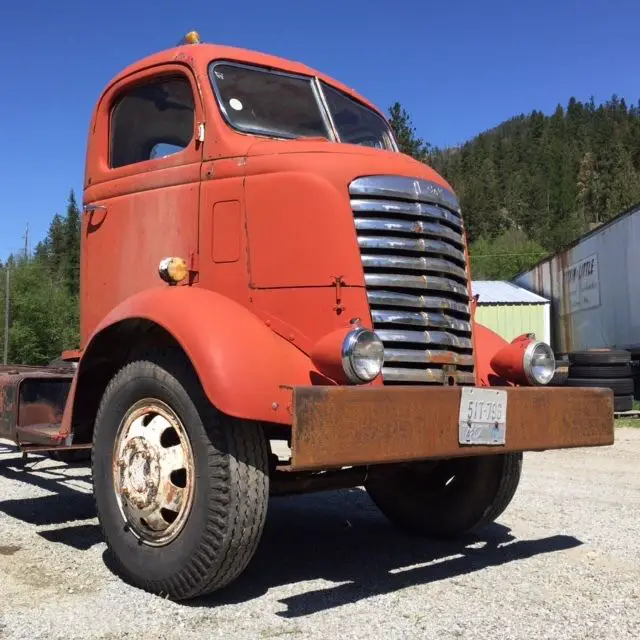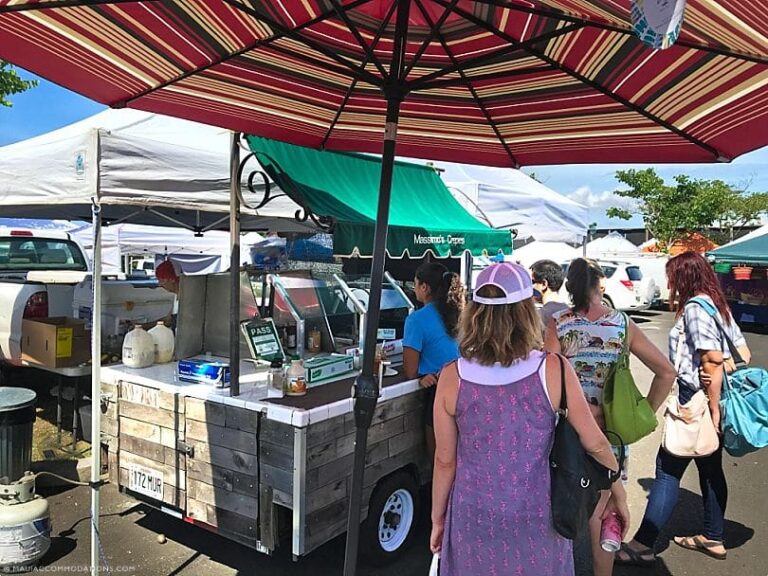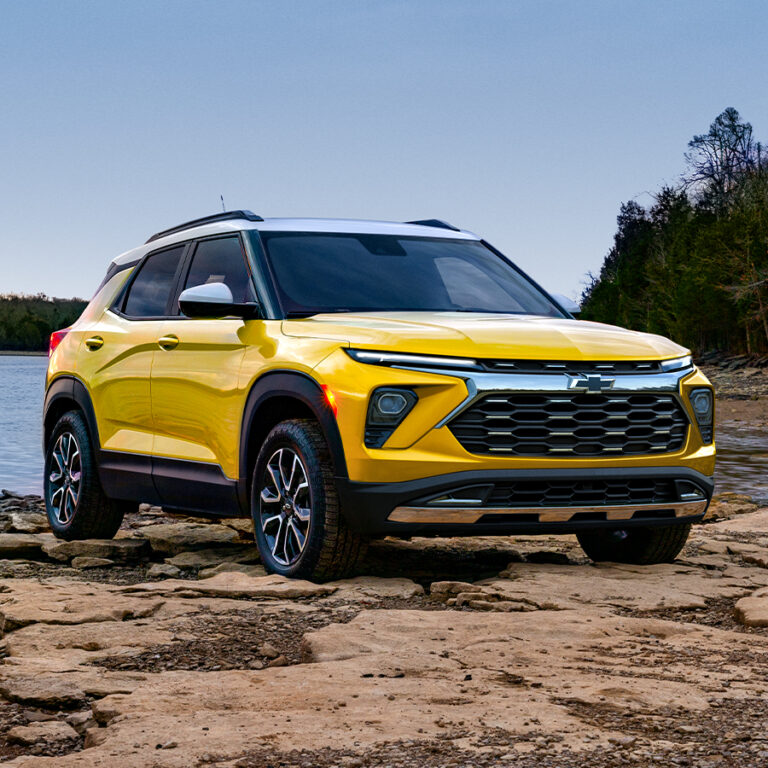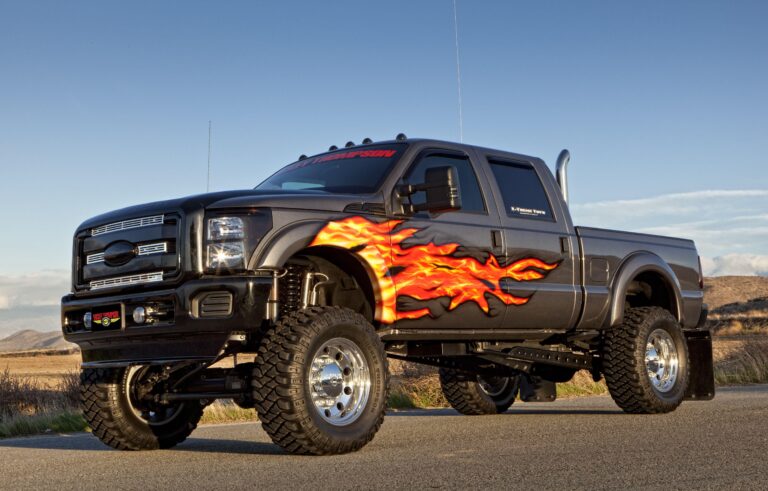Heavy Duty Trucks For Sale In California: Navigating the Golden State’s Commercial Vehicle Market
Heavy Duty Trucks For Sale In California: Navigating the Golden State’s Commercial Vehicle Market cars.truckstrend.com
California, with its colossal economy, extensive infrastructure, bustling ports, and diverse industries ranging from agriculture to advanced manufacturing, relies heavily on the efficient movement of goods. At the heart of this logistical ballet are heavy-duty trucks – the backbone of commerce. These formidable machines, typically categorized as Class 7 (26,001-33,000 lbs GVWR) and Class 8 (33,001+ lbs GVWR) vehicles, are designed to haul immense loads over long distances or perform specialized vocational tasks. For businesses and independent operators looking to expand their fleet or embark on a new venture, finding the right heavy-duty truck for sale in California is a critical investment that demands careful consideration, especially given the state’s unique regulatory landscape.
This comprehensive guide will delve into the intricacies of acquiring heavy-duty trucks in the Golden State, offering insights into types, market dynamics, crucial buying considerations, and practical advice to help you make an informed decision.
Heavy Duty Trucks For Sale In California: Navigating the Golden State’s Commercial Vehicle Market
Understanding Heavy Duty Trucks: Types and Classifications Essential for California Operations
Before diving into the market, it’s vital to understand the different classifications and types of heavy-duty trucks, as their suitability directly impacts their utility and, by extension, their value in California’s diverse economic sectors.
Class 7 Trucks (26,001-33,000 lbs GVWR): These are often referred to as medium-heavy duty trucks. They include single-unit trucks used for local deliveries, specialized vocational trucks, and smaller dump trucks. Common applications in California include beverage delivery, refuse collection, furniture moving, and some regional freight.
Class 8 Trucks (33,001+ lbs GVWR): This is the largest class of trucks and encompasses the iconic semi-trucks (tractors) that pull trailers, as well as heavy-duty vocational vehicles.
- Tractor-Trailers (Semi-trucks): The most common type, these are designed for long-haul freight across California’s vast highways and connecting to major ports like Los Angeles and Long Beach. They come in various configurations (day cabs for local runs, sleeper cabs for overnight trips).
- Dump Trucks: Indispensable for California’s continuous construction and infrastructure projects, moving sand, gravel, and debris.
- Refuse Trucks (Garbage Trucks): Critical for waste management across urban and rural areas.
- Concrete Mixers: Essential for construction sites, delivering ready-mix concrete.
- Flatbed Trucks: Used for transporting oversized or oddly shaped cargo, common in industries like construction, manufacturing, and agriculture.
- Tanker Trucks: For liquids (fuel, chemicals, water) or dry bulk materials.
- Specialized Vocational Trucks: Include tow trucks, fire trucks, boom trucks, and other vehicles tailored for specific tasks.

Each type serves a distinct purpose, and selecting the right one depends entirely on your operational needs, the weight of the cargo, and the typical routes and conditions it will encounter within California.
Why California is a Unique Market for Heavy Duty Trucks
California’s heavy-duty truck market is unlike any other in the United States, primarily due to its stringent environmental regulations, robust economy, and strategic geographical position.
1. The Dominance of CARB Regulations: The California Air Resources Board (CARB) imposes the nation’s most rigorous emissions standards for commercial vehicles. The Truck and Bus Regulation is particularly impactful, requiring diesel trucks and buses operating in California to meet specific emission requirements, often necessitating the installation of diesel particulate filters (DPF) or the use of newer engines that meet 2010 or later emissions standards. Non-compliant vehicles face severe penalties, including fines and inability to register or operate in the state. This makes CARB compliance a paramount consideration when buying any heavy-duty truck in California, especially used ones.
2. Economic Powerhouse and Logistics Hub: California’s economy, the largest in the U.S. and one of the largest globally, generates immense demand for freight transportation. The state’s major seaports (LA/Long Beach, Oakland) are vital gateways for international trade, creating a constant need for drayage and long-haul trucking. Agriculture in the Central Valley, tech industries in Silicon Valley, and a booming construction sector further fuel the demand for diverse heavy-duty truck types.

3. Diverse Operating Environments: From the high deserts and mountain passes to dense urban centers and sprawling agricultural lands, California presents a varied landscape for truck operations. This influences choices regarding engine power, suspension systems, and tire configurations.
Key Considerations When Buying Heavy Duty Trucks in California
Purchasing a heavy-duty truck is a substantial investment. In California, several factors weigh even more heavily on the decision-making process.
1. New vs. Used Trucks:
- New Trucks: Offer the latest technology, better fuel efficiency (often), comprehensive warranties, and guaranteed CARB compliance. The initial cost is significantly higher, but long-term reliability and lower maintenance in the early years can offset this.
- Used Trucks: Provide a lower entry price point, less depreciation, and a wider variety of makes and models. However, they come with potential risks: unknown maintenance history, wear and tear, and most critically, ensuring CARB compliance. Older used trucks may require costly upgrades or even be prohibited from operating in California.
2. CARB Compliance – Your Foremost Priority: For any used heavy-duty truck, verifying its CARB compliance is non-negotiable.
- Engine Model Year: Generally, engines manufactured in 2010 or later are considered compliant. Older engines might require an approved DPF.
- VIN Verification: Use the truck’s Vehicle Identification Number (VIN) to check its compliance status on CARB’s official website or through a reputable dealer.
- DPF and DEF Systems: Ensure these emission control systems are present, functional, and properly maintained for diesel trucks.
- Rule of Thumb: If a deal seems too good to be true on an older truck, it often is – especially if it lacks documented CARB compliance.
3. Application-Specific Needs:
- Gross Vehicle Weight Rating (GVWR) and Gross Combined Weight Rating (GCWR): Ensure the truck’s capacity matches your typical load.
- Engine & Drivetrain: Consider horsepower and torque for the terrain (e.g., more power for mountain passes), transmission type (manual vs. automated manual transmission for ease of use and fuel efficiency), and axle configurations (e.g., tandem axles for heavier loads).
- Mileage & Hours: For used trucks, high mileage or engine hours can indicate significant wear.
- Special Features: Depending on the job, you might need specific features like power take-off (PTO), auxiliary hydraulics, specialized body types, or advanced telematics.
4. Maintenance History and Pre-Purchase Inspection: For used trucks, a detailed maintenance record is invaluable. Always arrange for a pre-purchase inspection by an independent, certified heavy-duty truck mechanic. This can uncover hidden mechanical issues, structural damage, and potential CARB compliance problems that might not be obvious.
5. Financing and Insurance: Secure pre-approved financing if possible to understand your budget. Heavy-duty truck insurance is a significant ongoing cost and varies based on the truck’s value, your driving record, and the type of operation. Get multiple quotes.
Where to Find Heavy Duty Trucks for Sale in California
The California market offers several avenues for purchasing heavy-duty trucks:
- Authorized Dealerships (New and Used): Major manufacturers like Freightliner, Kenworth, Peterbilt, Volvo, Mack, and International have extensive dealership networks across California. They offer new trucks, certified pre-owned options, warranties, financing, and dedicated service departments, often assisting with CARB compliance verification.
- Independent Used Truck Dealerships: These dealers specialize in pre-owned trucks, offering a wider variety of makes, models, and price points. While they may offer competitive prices, it’s crucial to verify their reputation and diligence regarding CARB compliance.
- Online Marketplaces: Websites like TruckPaper.com, CommercialTruckTrader.com, MyLittleSalesman.com, and RitchieSpecs.com are excellent resources for browsing a vast inventory from dealers and private sellers nationwide, including California. Exercise caution with private sellers and always inspect the vehicle thoroughly.
- Auctions: Commercial truck auctions (e.g., Ritchie Bros., IronPlanet) can offer opportunities to acquire trucks at competitive prices. However, these are often "as-is, where-is" sales, carrying higher risk. They are best suited for experienced buyers who can quickly assess a truck’s condition and compliance.
- Fleet Sales: Larger trucking companies or construction firms occasionally sell off portions of their fleet. These trucks often have well-documented maintenance histories but may also have high mileage.
The Buying Process: A Step-by-Step Guide
Navigating the purchase of a heavy-duty truck in California requires a structured approach:
- Define Your Needs and Budget: Clearly outline the truck’s primary purpose, required specifications (GVWR, engine power, body type), and establish a realistic budget, including the purchase price, financing costs, insurance, and initial maintenance.
- Research CARB Compliance: For any potential used truck, immediately verify its CARB compliance status using the VIN. Do not proceed if compliance cannot be confirmed or if significant, costly upgrades are required.
- Source Potential Trucks: Utilize dealerships, online platforms, and other avenues to identify trucks that match your criteria.
- Thorough Inspection: Arrange for a professional pre-purchase inspection by a qualified, independent mechanic specializing in heavy-duty trucks. This is non-negotiable for used vehicles.
- Review Documentation: Scrutinize maintenance records, title history (check for salvage titles or liens), and perform a VIN check for accidents or odometer fraud.
- Test Drive: Drive the truck under various conditions, mimicking its intended use. Pay attention to engine performance, transmission shifts, brakes, steering, and any unusual noises.
- Negotiate Price: Based on your research, inspection findings, and market value, negotiate the best possible price.
- Secure Financing and Insurance: Finalize your financing arrangements and obtain insurance quotes before closing the deal.
- Complete Paperwork: Ensure all necessary documents are signed, including the bill of sale, title transfer, and registration. Be prepared for California’s specific registration requirements and smog checks.
- Post-Purchase Actions: Schedule initial preventative maintenance, register the vehicle with the DMV, and set up your ongoing service schedule.
Challenges and Solutions in the California Market
While the California market offers immense opportunities, it also presents unique challenges:
- Challenge: Strict CARB Regulations.
- Solution: Prioritize newer models (2010 engine or newer). For older models, demand irrefutable proof of compliance (e.g., DPF installation records, CARB Executive Order numbers). Buy from reputable dealers who guarantee compliance.
- Challenge: Higher Demand and Prices.
- Solution: Be prepared for potentially higher prices compared to other states. Expand your search beyond major metro areas, consider fleet sales, and be ready to act quickly when a suitable, compliant truck becomes available.
- Challenge: Ongoing Maintenance and Fuel Costs.
- Solution: Budget generously for maintenance, especially for emissions systems. Explore fuel efficiency technologies and consider alternative fuels if feasible for your operations. Regular preventative maintenance is key to minimizing costly breakdowns.
Estimated Price Table for Heavy Duty Trucks in California (Illustrative)
Please note: These prices are estimates only and can vary wildly based on make, model, year, mileage, condition, specific features, dealer location, and market demand. CARB compliance significantly impacts the value of older trucks in California.
| Truck Type / Class | Example Make/Model | Year Range | Condition | Estimated Price Range (USD) | Key Features / Notes |
|---|---|---|---|---|---|
| Class 8 Tractor | Freightliner Cascadia | 2020-2024 | New | $160,000 – $220,000+ | Latest emissions (CARB compliant), warranty, advanced tech, fuel efficiency. |
| Class 8 Tractor | Peterbilt 389 / Kenworth T680 | 2017-2019 | Used | $60,000 – $110,000 | Good condition, generally CARB 2010 engine compliant, higher mileage, some remaining life. |
| Class 8 Tractor | Volvo VNL / Mack Anthem | 2014-2016 | Used | $40,000 – $75,000 | Mid-range mileage, crucial to verify CARB compliance (DPF, DEF working), may require more immediate maintenance. |
| Class 7 Box Truck | Hino 268 / Isuzu FTR | 2018-2022 | New | $80,000 – $120,000+ | Ideal for local delivery, various box sizes, often CARB compliant out of the box. |
| Class 7 Box Truck | Ford F-750 / Freightliner M2 | 2015-2017 | Used | $30,000 – $60,000 | Good for regional hauling, check body condition, ensure CARB compliance. |
| Class 8 Dump Truck | Kenworth T880 / Western Star 4700 | 2019-2023 | New | $180,000 – $250,000+ | Heavy-duty chassis, specialized body, high payload capacity, CARB compliant. |
| Class 8 Dump Truck | International HX / Mack Granite | 2016-2018 | Used | $90,000 – $160,000 | Vocational use, inspect frame for cracks, check PTO and hydraulics, verify CARB. |
| Class 8 Refuse Truck | Peterbilt 520 / Autocar ACX | 2018-2022 | New | $250,000 – $350,000+ | Specialized body, complex hydraulic systems, high duty cycle, CARB compliant. |
| Class 8 Concrete Mixer | Mack Granite / Kenworth T880 | 2017-2020 | Used | $120,000 – $200,000 | Drum condition, PTO, and overall wear are critical; verify CARB compliance. |
Frequently Asked Questions (FAQ) about Heavy Duty Trucks For Sale In California
Q1: What is CARB compliance, and why is it so important when buying a heavy-duty truck in California?
A1: CARB (California Air Resources Board) compliance refers to meeting the state’s strict emissions standards for diesel commercial vehicles. It’s crucial because non-compliant trucks cannot be registered or legally operated in California, leading to significant fines and downtime. The primary regulation is the "Truck and Bus Regulation," which generally requires 2010 model year engines or newer, or older engines equipped with verified diesel particulate filters (DPFs).
Q2: Can I register an out-of-state heavy-duty truck in California?
A2: Yes, but it must meet California’s emissions standards. If the truck was originally sold new in California, it’s typically fine. If it’s a 2007 or newer model year truck originally sold outside California, it must have an engine certified to California emission standards or be equipped with an approved DPF. Older trucks (pre-2007) can be particularly challenging. Always verify CARB compliance before purchasing an out-of-state truck for use in California.
Q3: What’s the average lifespan of a heavy-duty truck?
A3: A well-maintained heavy-duty truck can last for 1,000,000 miles or more, especially the engine. However, the lifespan depends heavily on the type of operation (long-haul vs. vocational), maintenance schedule, and driving habits. Vocational trucks often accumulate engine hours faster than mileage.
Q4: How much does it cost to insure a heavy-duty truck in California?
A4: Insurance costs vary widely, ranging from $8,000 to $20,000+ annually, depending on factors like the truck’s value, type of operation (e.g., long-haul, hazardous materials, local), your driving record, the number of drivers, and the insurance provider. It’s a significant operating cost that must be factored into your budget.
Q5: Should I buy a new or used heavy-duty truck in California?
A5: The choice depends on your budget, risk tolerance, and specific needs. New trucks offer reliability, warranty, and guaranteed CARB compliance, but at a higher cost. Used trucks are more affordable but require diligent inspection and, most importantly, thorough CARB compliance verification. For first-time buyers or those prioritizing peace of mind, a newer, compliant used truck or a new truck might be a safer bet.
Q6: What should I look for during a pre-purchase inspection of a used truck?
A6: A professional inspection should cover the engine (oil analysis, compression test), transmission, differential, brakes, tires, suspension, frame (for cracks or damage), electrical system, and all major components. Critically, ensure all emission control systems (DPF, DEF) are present and functioning correctly, and verify the engine’s CARB compliance status with its VIN.
Conclusion
Acquiring a heavy-duty truck for sale in California is a strategic decision that can significantly impact your business’s efficiency and profitability. The Golden State’s unique market, characterized by stringent environmental regulations and a dynamic economy, demands a meticulous approach. By thoroughly understanding your needs, prioritizing CARB compliance, conducting comprehensive inspections, and leveraging the diverse resources available, you can confidently navigate the market. A well-chosen heavy-duty truck isn’t just a vehicle; it’s a powerful asset ready to tackle the demands of California’s vast commercial landscape, driving your success mile after mile.







